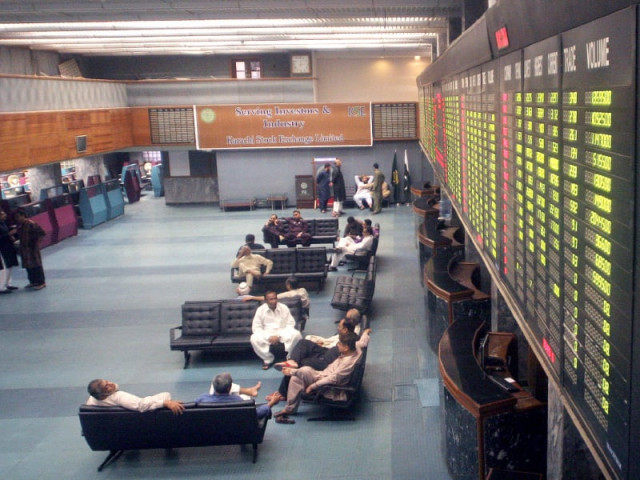Reduced tax on listed, dividend-paying firms proposed
To offset this, income tax on small companies may be increased.

The government is considering lessening the tax burden on companies registered on the stock market. PHOTO: ATHAR KHAN/EXPRESS
With a standard income tax rate of 34% for all big firms, the government is considering lessening the tax burden on companies registered on the stock market and firms paying dividends to shareholders may get additional benefits.
To make up for this revenue loss, the tax on small companies, which are charged at the rate of 25%, is suggested to be increased, according to sources in the Federal Board of Revenue (FBR).
The proposals have been sent by the Securities and Exchange Commission of Pakistan (SECP) – the corporate regulator.
It has suggested that the FBR should do away with the uniform corporate tax rate for big companies, irrespective of the fact whether a company is listed and paying dividends.
At present, a 34% corporate tax is imposed on all types of companies – large-sized unlisted firms, listed companies giving cash dividend and listed but not giving cash dividend.
Banks are charged at the rate of 35% while for small companies the income tax is 25%.
The SECP has proposed that from tax year 2015 the burden on listed companies giving cash dividend should be eased by 8.8%. It suggests a reduction in income tax on these companies to 31% compared to the standard 34%.
Companies usually pay dividends in the shape of cash and stocks. Cash dividend is immediately taxed as income, while stock dividend is taxed when it is actually sold by the shareholder.
The SECP has proposed that the tax on listed companies that are not paying dividends should be cut by 5.9%. It suggests a tax rate of 32% compared to existing 34%.
For large-sized unlisted public and private companies, the regulator has proposed 33% income tax.
“The FBR is considering the SECP’s proposals,” said FBR Chairman Tariq Bajwa.
There should be a minimum threshold for cash dividends, as a company paying 5% of income in dividend should not be treated equally with a firm that pays half of the income, said Ashfaq Tola, a Karachi-based tax expert.
In its proposals, the SECP has argued that a gradual reduction in corporate tax rates over the years has triggered growth of the corporate sector, with an average 3,000 new companies being registered every year.
The regulator has asked the government to link the gradual reduction in corporate tax on big companies with the increase in tax rate for the Association of Persons or small companies. For the next financial year, it has proposed that the tax on small companies should be enhanced to 29% from existing 25%.
According to the SECP’s estimates, the FBR will collect Rs24 billion in additional revenues with the increase in income tax on small companies.
Lowering tax rates for listed companies will cause a revenue loss of Rs14 billion. However, the FBR is expected to receive an additional Rs20 billion from unlisted companies despite a 1% cut in the tax rate.
Against collection of Rs585.7 billion from big and small companies in tax year 2014, the estimates suggest that the FBR could still fetch Rs615.3 billion in 2015, up Rs29.6 billion or 5%, after changing the tax rates.
Inactive taxpayers
The FBR is also considering a proposal to increase the cost of doing business for inactive taxpayers as compared to active taxpayers, according to the FBR officials.
The proposal is aimed at pressing the dormant National Tax Number (NTN) holders to become active taxpayers. One option is to propose higher sales tax rate for such NTN holders.
However, a similar decision taken last year backfired after the business community protested against it.
Published in The Express Tribune, May 14th, 2014.
Like Business on Facebook, follow @TribuneBiz on Twitter to stay informed and join in the conversation.



















COMMENTS
Comments are moderated and generally will be posted if they are on-topic and not abusive.
For more information, please see our Comments FAQ